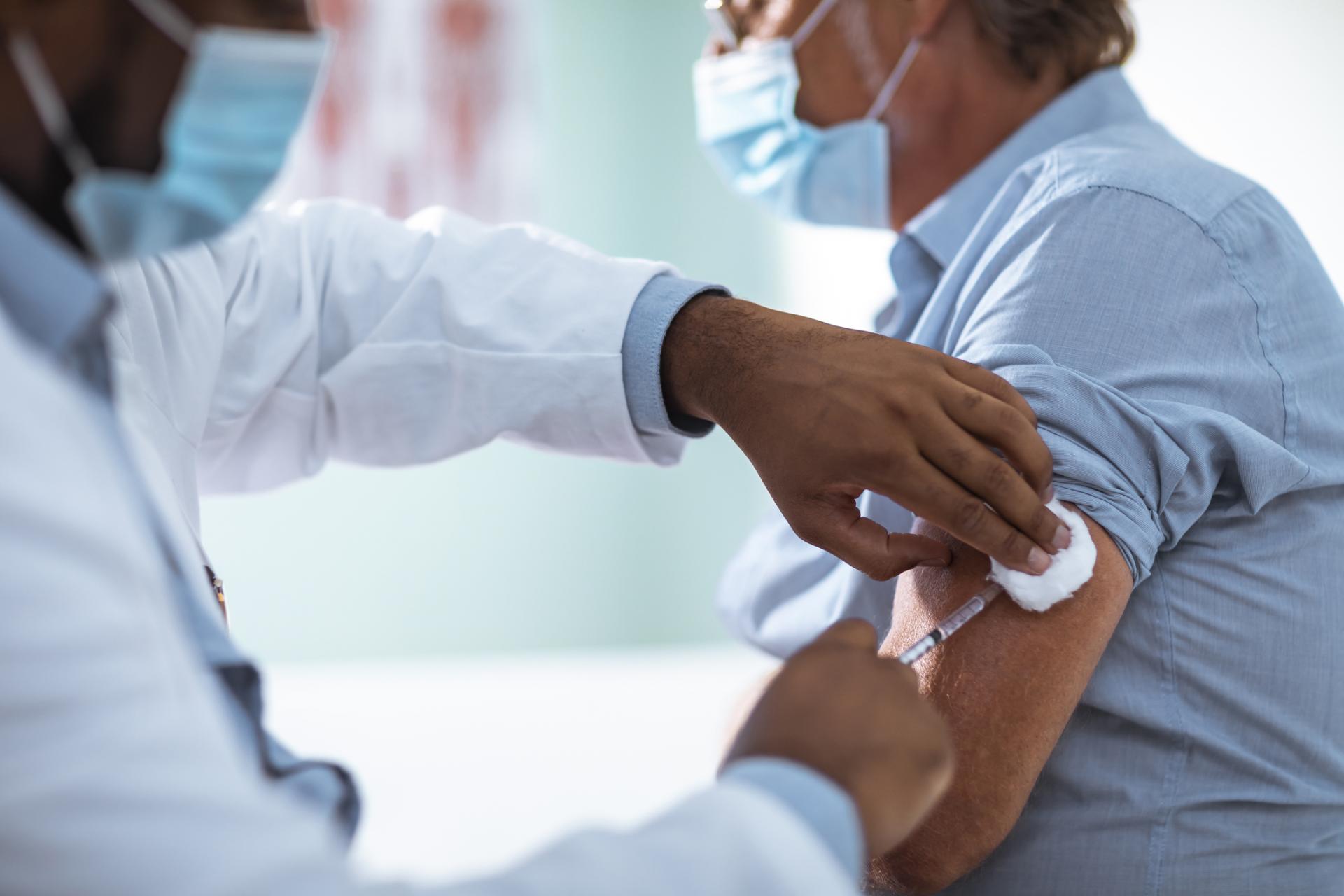COVID-19 vaccination update
Published on: 12 January 2021Lymphoma Action respond to frequently asked questions about the COVID-19 vaccines

We have been receiving an increase in calls specifically around the vaccines and wanted to address two questions that are frequently being asked:
Is the Oxford/AstraZeneca vaccine ‘live’ and is it safe for me to have?
You may have seen reports questioning whether the Oxford/AstraZeneca vaccine is a ‘live’ vaccine. The reason this has been raised is because generally ‘live’ vaccines are not recommended for people with lymphoma because they are made using bacteria or viruses that are weakened but still alive.
The Oxford/AstraZeneca vaccine is known as a ‘non-replicating’ vaccine. It uses a virus to help instruct your cells to make a protein that stimulates your immune system to respond to coronavirus. The virus in the vaccine is not a coronavirus and has been modified to make sure that it can’t make copies of itself (replicate). This means that it cannot cause infections, even in people who are immunosuppressed. There are no particular safety issues of using this type of vaccine in people who have lymphoma.
Whilst the Oxford/AstraZeneca vaccine uses a virus to help deliver the COVID-19 protein to cells so that it can then stimulate the immune system, the virus has been rendered incapable of replicating. It therefore cannot give the recipient COVID-19 and should not be considered to be a live vaccine. It is perfectly safe for immunosuppressed people to have the Oxford/AstraZeneca vaccine.
Which of the three vaccines now approved is most suitable for people affected by lymphoma?
The vaccines have not been compared to each other in clinical trials, and there is currently no evidence on whether any particular vaccine is better than another in particular populations. They all have a very good safety profile and they are all effective at preventing severe disease from COVID-19. All three of the vaccines currently approved in the UK are suitable for people with lymphoma.
The government recommends that people who are at higher risk of becoming seriously ill due to COVID-19 should have the vaccine when it is offered to them. This includes people affected by lymphoma. The government advises that the vaccines are suitable for all priority groups.
A consensus of UK lymphoma specialists also recommend that all patients with lymphoma should receive a non-replicating COVID-19 vaccine, unless there are particular reasons they can't have it (for example, if they've had serious allergic reactions to a vaccine in the past, or they are pregnant or breastfeeding). The Pfizer/BioNTech vaccine, Oxford/AztraZeneca vaccine and Moderna vaccine are all non-replicating. These vaccines might not achieve full protection for people who have lowered immunity, and vaccination of close contacts when available is also likely to be beneficial.
Find out more at a webinar on COVID-19 vaccines
To find out more, join us on Friday 15 January for a webinar entitled COVID-19 vaccines - your questions answered. This webinar will focus on the current situation in the UK with the COVID-19 vaccines, specifically in relation to people living with a blood cancer diagnosis.
12 January 2021
